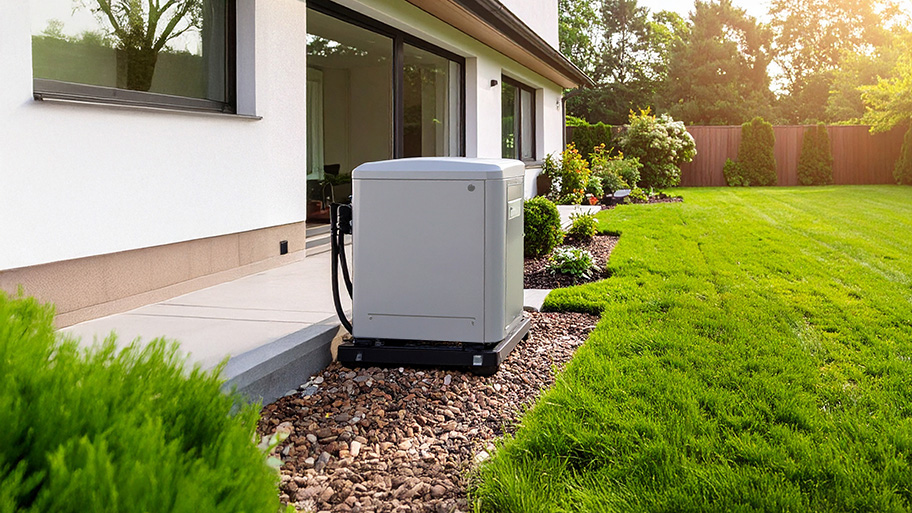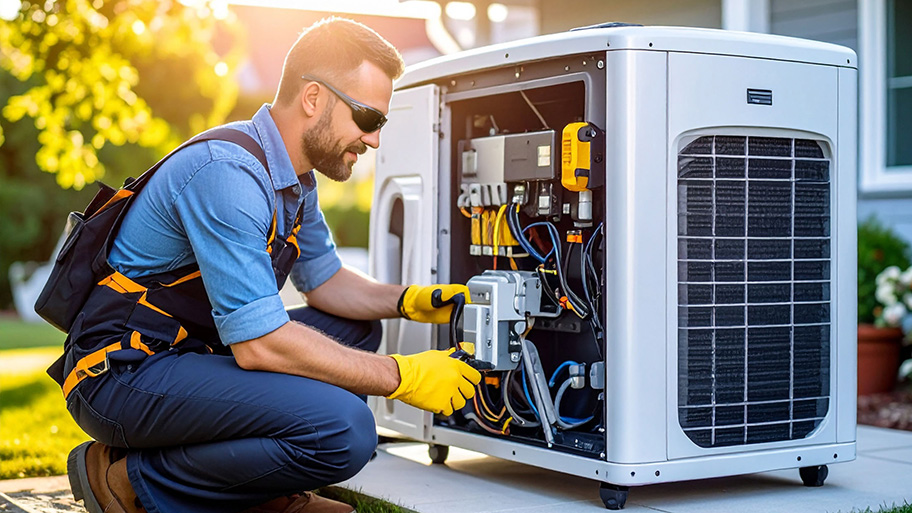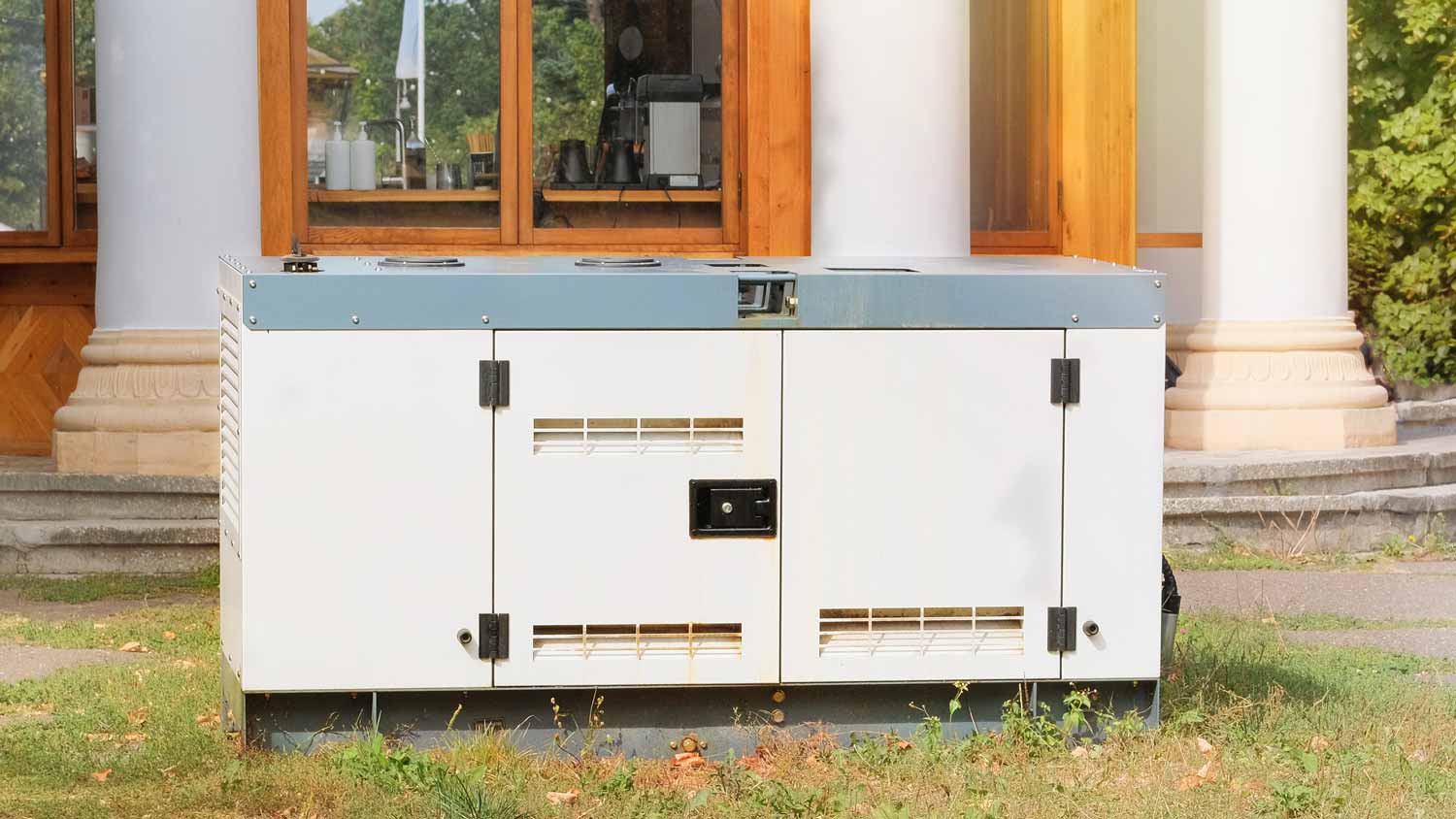
The average cost of a whole-house generator falls between $5,000 and $25,000. Keep reading to learn how much you can expect to spend.
Power up to meet your pro


A fixed generator gives you uninterrupted service during power outages, allowing you to use critical devices and appliances (or your entire home). You’ll want to make sure your fixed generator is installed properly and meets local code. Here are six backup generator questions to review so you’re ready to work with an electrical contractor.
Power outages can happen for several reasons but are most common during storms and severe weather, such as heat waves and winter ice storms. If you want uninterrupted power—or need it for an at-home medical device—protect your home and talk with contractors about getting the project done before the season starts.
A fixed generator must be installed outside, typically on a concrete pad and at least 20 feet away from your home. You’ll also need to meet local code requirements. Brainstorm possible locations for your fixed generator and any access issues a pro might face, such as if it’s near a fence or on a sloped surface.
Consider what type of generator you want, whether it’s a partial or whole-house generator. You’ll also need to determine the fuel type (natural gas, propane, or diesel) and whether you want a manual or automatic start.
Think about the most critical appliances you want during a power outage, such as medical devices, your freezer, refrigerator, stove, or electric water heater. If you store lots of meat in your freezer, you may want to keep the power flowing, but perhaps you don’t care as much about turning on overhead lights. Or, maybe you prefer the power not to be interrupted at all and opt for a whole-house solution.
Your generator's type, size, and fuel determine how much it costs to run. On average, a 15-to-20-kW whole-house generator costs $90 to $220 daily, while partial generators fall below that.
The cost of a whole-house generator ranges from $5,000 to $18,000, while partial generators range from $2,000 to $6,300. You’ll also need to pay a licensed electrician for installation, including adding proper wiring and a transfer switch to your electrical panel.
While the upfront investment can be high, consider how much an outage costs you, both financially and in terms of convenience. Losing a fridge full of food can be expensive, and having to find an alternative location to work can be a nuisance.
You can purchase a generator online or at a home improvement store, but oftentimes, it’s easier for a contractor to manage the project from start to finish, including buying the generator for you. A local electrician will have recommendations about the best generator for your needs and how to purchase it.
From average costs to expert advice, get all the answers you need to get your job done.

The average cost of a whole-house generator falls between $5,000 and $25,000. Keep reading to learn how much you can expect to spend.

The cost to install a generator transfer switch depends on several factors. Our guide will help you understand all of the costs.

Keeping on top of generator maintenance and repairs gives you extra peace of mind as a homeowner. Find out how much regular generator maintenance costs.

When the power goes out, your whole house generator can keep your home running if it has enough propane to fuel it. Read our guide to propane use for whole house generators to determine how much you need.

Installing a portable generator can power key appliances during outages. Learn about the best backup generator questions to discuss with a pro.

How much does it cost to run a standby generator? The answer varies based on the type and size of the generator. Find out more.